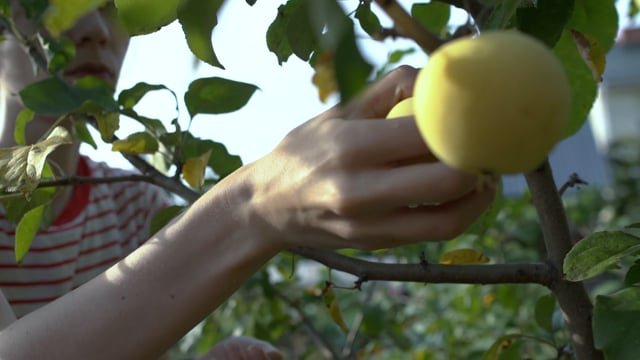Canada is renowned for its robust agricultural industry, which offers numerous job opportunities, including fruit packing positions.
For foreigners seeking employment with visa sponsorship, fruit packing jobs can be a viable entry point. This guide outlines the steps to secure a fruit packer job in Canada with full visa sponsorship.
1. Understanding the Fruit Packing Industry in Canada
Industry Overview
Canada’s fruit packing industry is integral to its agricultural sector, especially in provinces like British Columbia, Ontario, and Quebec. The industry involves sorting, packing, and shipping fruits such as apples, berries, cherries, and grapes.
Job Description
Fruit packers are responsible for:
- Sorting fruits based on size, type, and quality.
- Packing fruits into containers for shipment.
- Inspecting fruits for damage and quality control.
- Operating packing equipment and maintaining cleanliness.
Seasonal Nature
Many fruit packing jobs are seasonal, aligning with harvest periods. However, some positions may be available year-round, depending on the employer and type of fruit.
2. Research and Prepare for the Job Market
Identify Potential Employers
Research companies and farms that regularly hire fruit packers. Some well-known employers include:
- Okanagan Specialty Fruits
- BC Tree Fruits Cooperative
- Algoma Orchards
Job Search Resources
- Job Portals: Use websites like Indeed, WorkBC, and Job Bank for job listings.
- Agricultural Job Boards: Sites like AgriJobMatch and Canadian Agricultural Human Resource Council (CAHRC) list industry-specific positions.
Networking
Join social media groups, forums, and communities focused on Canadian agriculture. Networking can lead to job referrals and insider information about job openings.
3. Obtain Necessary Qualifications
No Formal Education Required
Fruit packing jobs typically do not require formal education. However, having basic literacy and numeracy skills can be beneficial.
Language Skills
Basic English proficiency is often required. Consider improving your language skills through free online resources like Duolingo or local language courses.
Physical Fitness
Ensure you are physically fit, as the job involves standing for long periods, lifting, and repetitive tasks.
4. Securing Employment with Visa Sponsorship
Job Application Process
- Resume: Create a simple resume highlighting any relevant experience in agriculture or packing. Emphasize your physical fitness and willingness to work in seasonal conditions.
- Cover Letter: Write a brief cover letter expressing your interest in the job and mentioning your need for visa sponsorship.
Highlight Visa Sponsorship Needs
Clearly state your need for visa sponsorship in your application. Employers willing to sponsor foreign workers will be aware of the process and requirements.
Temporary Foreign Worker Program (TFWP)
Most fruit packer jobs for foreigners are processed through the TFWP. Employers must obtain a Labor Market Impact Assessment (LMIA) to hire foreign workers. Ensure the job listing specifies that the employer has or is willing to obtain an LMIA.
Use Recruitment Agencies
Consider using recruitment agencies that specialize in placing foreign workers in Canadian agricultural jobs. They can assist with the application and sponsorship process.
5. Navigating the Visa Sponsorship Process
Understanding the TFWP
- Labor Market Impact Assessment (LMIA): An LMIA confirms that hiring a foreign worker will not negatively impact the Canadian labor market. The employer applies for this assessment.
- Work Permit: Once the LMIA is approved, you can apply for a work permit. This permit allows you to work in Canada for a specific employer and duration.
Required Documentation
- Job Offer Letter: A formal job offer from a Canadian employer willing to sponsor your visa.
- Proof of Identity: A valid passport and other identification documents.
- Application Forms: Completed visa application forms, which can be found on the Immigration, Refugees and Citizenship Canada (IRCC) website.
- Medical Examination: A medical exam may be required to ensure you meet health standards.
Application Process
- Employer Applies for LMIA: The employer submits an LMIA application to Employment and Social Development Canada (ESDC).
- Receive Positive LMIA: Once approved, the employer provides you with a copy of the LMIA and a job offer letter.
- Apply for Work Permit: Submit your work permit application along with the LMIA and job offer letter to the IRCC.
6. Preparing for the Move to Canada
Financial Planning
While moving with minimal funds is possible, having some savings can ease the transition. Consider costs for transportation, initial accommodation, and basic necessities.
Finding Accommodation
- Temporary Housing: Look for temporary housing options such as hostels, Airbnb, or short-term rentals.
- Farm Accommodation: Some employers provide housing for seasonal workers. Inquire about this option when discussing your job offer.
Transportation
Research affordable transportation options. Public transit and ride-sharing services are cost-effective ways to get around.
7. Settling into Your New Job
Workplace Orientation
Participate in any orientation or training programs provided by your employer. This will help you understand your job duties and safety protocols.
Building a Support Network
Connect with fellow workers and local communities. Building a support network can help you adjust to your new environment and provide assistance when needed.
Adapting to the Canadian Workplace
Familiarize yourself with Canadian workplace culture, which emphasizes punctuality, teamwork, and communication.
8. Long-Term Considerations
Pathways to Permanent Residency
Explore options for transitioning from a temporary work permit to permanent residency. Programs like the Canadian Experience Class (CEC) or Provincial Nominee Programs (PNPs) may offer pathways to stay in Canada long-term.
Skill Development
Consider developing additional skills or obtaining further certifications to enhance your employability in Canada. Many community centers and educational institutions offer affordable courses.
Conclusion
Securing a fruit packer job in Canada with full visa sponsorship is a viable option for foreigners seeking employment in the agricultural sector.
By thoroughly researching the job market, preparing necessary documentation, and understanding the visa sponsorship process, you can successfully navigate the journey to work and live in Canada.
Utilize available resources, network with industry professionals, and stay proactive in your job search to achieve your goal.
Feel free to reach out if you need further assistance or additional information!


